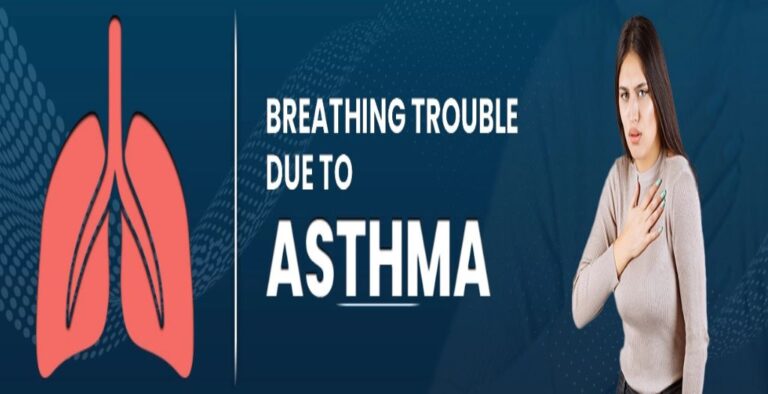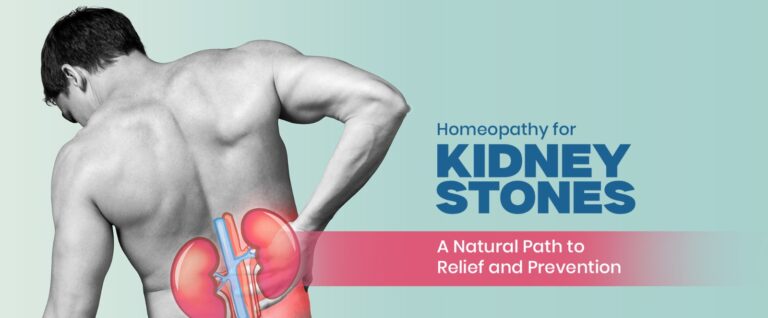Asthma is a long-term, chronic disease that affects the lungs. Asthma causes inflammation and narrowing of the airways, leading to symptoms like chest tightness, breathing problems, coughing, and wheezing. As asthma is a long-term condition, it indicated it cannot be cured; however, with the right treatments, it can be managed with ease.
Asthma has no cure. However, with proper care and management, the symptoms can be managed and controlled. In certain cases, asthma attacks can become life-threatening. Hence, it is essential to take proper treatment and care for asthmatic patients to prevent an attack. Understanding what triggers an asthma attack is one of the best ways to prevent it.
In this article, we will learn in detail about asthma, its causes, symptoms, diagnosis, treatment, and management. We will also learn about the various homeopathy remedies available to treat asthma. So, please keep reading.
What is Asthma?
Asthma, also known as bronchial asthma, is a chronic health condition affecting the lungs. Asthma affects the airways, which are tubes responsible for carrying air in and out of the lungs. In asthma, the airways become swollen, narrowed, and inflamed. This inflammation, narrowing, and swelling of the airways cause the muscles around the airways to tighten, causing breathing difficulties.
Prevalence of Asthma:
- As per the Global Burden of Disease Collaboration in 2019, an estimated 262 million people globally were affected by asthma.
- Other statistics from The Global Asthma Report 2022 showed
- that 1000 individuals die every day due to asthma.
- As the leading cause of years lived with disability, asthma ranked in the 24th position.
- In India, asthma affects more than 35 million people.
What happens in an asthma attack?
At the time of normal breathing, the muscles around the airways are in a relaxed state, and the air can move in and out easily. However, in an asthma attack, there are three things that occur. These include,
Bronchospasm: In this, the muscles present around the airways tighten. This tightening of airways makes them narrow and constricts the flow of air.
Inflammation: The airway linings swell, making it difficult for air to pass in and out of the lungs.
Mucus production: At the time of an asthma attack, the body creates excessive mucus, causing the airways to become clogged.
As the airways become tighter, a wheezing sound can be heard while breathing. This can also occur during an asthma flare-up.
Types of Asthma:
There are various types of asthma that can develop in different ways and for different reasons. Allergic reactions, excessive exercising, certain health conditions, changing weather, chemicals, smoke, effects of certain medications, and strong emotions are some of the potential triggers of asthma. Some of the common types of asthma include the following,
Adult-onset Asthma
While asthma can develop in individuals of any age, there are certain factors that can increase the risk of its development in adulthood. Some of these risk factors of asthma in adulthood include the following,
- Respiratory issues
- Hormonal problems
- Stress
- Smoking
- Obesity
- Exposure to allergens like pollen
Childhood asthma
This type of asthma is a chronic type commonly seen in children. Childhood asthma can develop at any age. The symptoms of this type of asthma may usually be experienced between 12-14 years of age. Some of the common triggers for childhood asthma include the following,
- Effect of allergens
- Certain air pollutants
- Sudden temperature changes
- Exposure to cold
- Smoking or inhaling secondhand smoke
- Respiratory infections
- Exercising
- Stress
Occupational Asthma
This is the type of asthma that happens when a person is exposed to irritants or allergens at their workplace.
Seasonal Asthma
Seasonal asthma occurs when there are certain allergens present in a particular season. Examples of seasonal Asthma include pollen in spring or cold exposure due to winter.
Exercise-induced Asthma
This is a type of asthma that gets triggered when an individual exercises. Causes of Asthma:
The exact causes of asthma remain unknown as researchers are still not sure about them. However, there are some risk factors that may increase an individual’s risk of developing asthma. These risk factors include the following,
Genetics: If you have a family history of asthma, you are also likely to be at a risk of developing it.
Allergies: Having certain allergies to allergens can also increase your risk of getting an asthma attack.
Respiratory infections: Having certain types of respiratory infections, such as respiratory syncytial virus (RSV), act as a risk factor for childhood asthma.
Environmental factors: Certain environmental factors like fumes, toxins, allergens, secondhand smoke, and more can trigger asthma in some people by irritating the airways.
Apart from these major risk factors, some other triggers of asthma include the following,
- Dust mites
- Exercise
- Pests
- Mold
- Air pollution
- Tobacco smoke
- Certain smells and fragrances
- Occupational exposure to chemicals, wood, or flour dust
- Stress
- Viral infections
- Smoking at the time of pregnancy
Signs and symptoms of asthma:
The signs and symptoms of asthma are similar to those occurring in other respiratory infections. The various signs and symptoms of asthma include the following,
- Chest pain
- Tightness in chest
- Chest pressure
- Wheezing
- Shortness of breath
- Trouble sleeping due to coughing, wheezing, or shortness of breath
- Persistent cough
Diagnosis of Asthma:
To diagnose asthma, the healthcare provider will take into consideration the symptoms of the patient, personal medical history, and family history. They will also conduct an examination of the various symptoms and possible triggers. During a physical examination, the healthcare provider will look for signs of wheezing, swelling in the nasal passages, and more. Blood tests, spirometry and allergy testing may also be done by the healthcare provider if required.
Treatment of Asthma:
The treatments provided for asthma are aimed at improving the symptoms. The goal of asthma treatment is to help,
- Reduce the number of attacks
- The individual breathes better
- Improve the quality of everyday life
Bronchodilators and anti-inflammatory medicines are often prescribed by healthcare providers for asthma treatment.
Homeopathic Asthma Treatment
Homeopathic treatment for asthma is a mild and safe treatment approach that has minimal to no side effects. Many individuals these days prefer homeopathic treatments due to their benefits. The homeopathic treatment approach addresses the root cause of a condition and helps improve the immune system and nervous system which helps the body to heal.
Homeopathic treatments for asthma are prescribed after considering various patient-related factors.
Dr.Care provides the best homeopathic treatments for various conditions, including asthma. Our homeopathic doctors provide homeopathic treatment for asthma depending on your symptoms, overall health, the root cause, and medical history. Our homeopathic treatments for asthma not only provide symptomatic relief but also help with improving your overall health. If you have asthma, reach out to our team today to get the best homeopathic treatment for asthma.
How to prevent an asthma attack:
To prevent an asthma attack, it is important to understand its triggers. A healthcare provider can help understand the various triggers and how to avoid them. Avoiding asthma triggers can help in avoiding an attack.
Conclusion
Asthma is a chronic condition that causes inflammation and swelling in the airways. Asthma cannot be cured and can happen to anyone regardless of their age. In some people, the symptoms of asthma may be mild, while some people may experience severe asthma symptoms. While asthma cannot be cured, with proper treatment and care, it can be managed efficiently. Homeopathy is a good treatment approach for treating and managing asthma condition. Homeopathic remedies for asthma provide not only symptomatic relief but also improve overall health by focusing on the immune system in the body.



